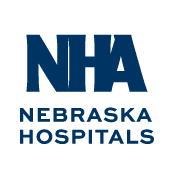Acute Care Hospital Conditions of Participation, 5-part series (W3006-W3010)
Dates: Thursdays, Jan. 19, 26, Feb. 2, 9, & 16
Time: 10:00 a.m. – 12:00 p.m. CT
Speakers:
Lena Browning, MHA, BSN, RNC-NIC, CSHA & Susan Seeley, RN, MSN, NEA_BC with Nash Healthcare Consulting
Cost: $595 to NHA members (per hospital, no charge for additional lines, recordings available up to 60 days after the webinar)
Target Audience
Chief Medical Officer, Chief Nursing Officer, Compliance Officer, Emergency Department Personnel, Joint Commission Coordinator, Medical Records, Quality Improvement personnel, Risk Manager, Legal Counsel.
Course Curriculum
Every hospital that accepts payment for Medicare and Medicaid patients must comply with the Centers for Medicare & Medicaid Services (CMS) Conditions of Participation (CoPs). The CoPs manual has interpretive guidelines that must be followed for all patients treated in the hospital or hospital-owned departments. Facilities accredited by the Joint Commission (TJC), Healthcare Facilities Accreditation Program (HFAP), Center for Improvement in Healthcare Quality (CIHQ), and Det Norske Veritas (DNV) Healthcare with Deemed Status must also follow these regulations. This five-part webinar series will cover the entire CMS Hospital CoPs manual for acute care hospitals.
Learning Objectives:
At the conclusion of this session, participants should be able to:
Part One:
• Discuss how to locate a copy of the current CMS CoP manual.
• Describe that a history and physical for a patient undergoing an elective surgery must not be older than 30 days and updated the day of surgery.
• Recite that the physician must sign off on verbal orders, which must include a date and time.
Part Two:
• Recall that CMS has restraint standards that hospitals must follow.
• Describe that the patient has a right to file a grievance and the hospital must have a grievance policy and procedure in place.
• Discuss that interpreters should be provided for patients with limited English proficiency, and this should be documented in the medical record.
• Recite that the term LIP (licensed independent practitioner) has been changed to LP (licensed practitioner) to allow PAs to order restraints.
Part Three:
• Describe what medications must be given timely and within one of three blocks of time.
• Recall that medical staff should approve and sign off on all protocols, which should be entered into the medical record.
• Recite that there are many pharmacy policies required by CMS.
• Explain that a nursing care plan must be in writing, started soon after admission, and maintained in the medical record.
• Discuss that the hospital must have a safe, MEC-approved opioid policy and staff must be educated on the policy.
Part Four:
• Recall that CMS has patient safety requirements in the QAPI section that are problematic standards.
• Describe the radiology policies required by CMS, including one on radiology safety and another to make sure all staff are qualified.
• Discuss that a hospital can credential the dietician to order a patient’s diet if allowed by the state.
Part Five:
• Discuss that CMS requires many policies in infection control.
• Recall that patients who are referred to home health, inpatient rehab, LTCH, and LTC must be given a list in writing of available facilities and this list must be documented in the medical record.
• Describe that all staff must be trained in the hospital’s policy on organ donation.
• Recall the items that CMS requires to be documented in the medical record regarding the post-anesthesia assessment.
• Recite that CMS has finalized the discharge planning worksheet and changes to the standards.
Speaker Bios:
Lena Browning is a nurse leader and accreditation specialist with more than 25 years of experience in clinical leadership in acute care settings. As a principal consultant with Compass Clinical Consulting, Lena served as team lead for the accreditation and regulatory compliance survey team. Most recently, Lena has fulfilled three interim positions as director of accreditation and was responsible for restructuring accreditation departments and leading organizations in compliance. Additionally, Lena has successfully coached numerous organizations through Immediate Jeopardy (IJ) situations with all organizations getting the IJ lifted, and no condition level findings noted on return surveys.
Prior to consulting, Lena had over two decades of experience in accreditation and regulatory leadership. As an expert for CMS, TJC, and state regulations, she has performed system-wide tracers for continuous readiness and patient safety, coordinated accreditation and regulatory surveys, chaired continuous readiness committees, and coached staff and leadership in compliance and performance improvement strategies.
Lena earned a Master of Healthcare Administration from the University of Southern Indiana and a Bachelor of Science in Nursing from Murray State University. She holds numerous certifications in basic life support, neonatal and pediatric advanced life support, and newborn resuscitation and post resuscitation stabilization. She is also a member of the Association for Professionals in Infection Control and Epidemiology (APIC).
Susan Seeley has over 40 years of experience in the health care industry, both as a nurse leader and as a clinical consultant with a focus on patient care services and regulatory compliance. She is experienced in conducting mock surveys and improving client hospitals’ accreditation survey preparedness through on-site education. Susan has helped organizations achieve continuous survey readiness and assists organizations with writing and implementing successful Plans of Corrections for survey deficiencies. She has also assessed quality programs, clinical operations, the structure and function of medical staff committees, and the implementation of peer review quality plans.
Prior to becoming a consultant, Susan spent 19 years as the chief nursing officer for a rural Florida hospital while working part time for the parent company as a clinical consultant for their more than 200 hospitals. She earned her Master of Science in Nursing Administration and her Bachelor of Science in Nursing from Barry University in Miami Shores, Florida. She is a registered nurse and holds an Advanced Nurse Administrator certification through the American Nurses Association.
These speakers have no real or perceived conflicts of interest that relate to this presentation.

